Industrial Refrigeration: Training the Next Generation
Introduction
The refrigeration workforce is aging. Students interested in STEM (science, technology, engineering, and mathematics) are often drawn to high-tech industries, and largely unaware of refrigeration. While efforts are being made to recruit new workers into this vital industry, are the efforts sufficient? In 2022, I decided to be part of the solution by starting a RETA Book 1 training course for two sixth-grade students. The following year, I started a second class with four students ranging in age from 10-12. This two-year endeavor has been both challenging and rewarding, but certainly worth the effort.
The Program
The refrigeration training program did not start as a “training program” at all. Our office cleaning service had been interrupted and we were considering new options. Both my son (Seth Thomas) and a colleague’s son (Titus Torres) were homeschooled sixth graders and earning real money was an attractive offer. They were both eleven years old at the time, an ideal age to start working part-time.
Soon after beginning weekly employment as our office cleaning crew, the thought arose to utilize some of their time at the office to teach refrigeration. RETA’s Certified Assistant Refrigeration Operator (CARO) exam offered a meaningful goal to aim for. So I prepared a “contract” and approached the boys. The contract stipulated that I would allocate 30-45 minutes of their workday toward refrigeration training if they would complete all other assignments on their own time. They eagerly agreed and we got to work.
Each week, I would email the students assignments. The assignments included the following:
- Reading – I would assign a section from RETA Book 1 that they were expected to read each week. Generally, they would be asked to read half of a chapter
- Quizzes – Two quizzes were assigned daily. Each quiz had ten questions and was administered via Google Forms. The quizzes were automatically graded so the students could receive instant feedback.
- Flashcards – The students were required to make more than 150 flashcards. I asked them to make five daily until all the flashcards were created. They were instructed to study twenty-five flashcards per day.
- Videos – My weekly emails included links to recorded refrigeration training videos which I had taught internally to other employees. Additionally, I would assign other videos applicable to the subject being studied that week.
During our weekly in-person instruction, I would review the chapter that they had been assigned. Typically, I would teach on the same chapter for two consecutive weeks.
Since the students lacked hands-on experience, I developed a directory of resources pertinent to each chapter in the RETA Book. For example, when teaching through RETA Book 1 Chapter 5 “Refrigeration Compressor Types“, I recorded a video about upright compressors while visiting a client site. This helped them associate their reading with real-life examples.
Similarly, when explaining P&IDs in RETA Book 1 Chapter 6, I was able to describe the process of how a P&ID is developed from a field sketch to a final CAD drawing.
When lecturing on lubrication, I was able to show examples of normal and abnormal analysis reports. Wherever possible, I attempted to expose the students to real-world examples.
Quizzes
After completing a chapter from RETA Book 1, I would administer an end-of-chapter quiz. These quizzes were intentionally difficult, knowing that the CARO exam would not be a walk in the park. The quizzes were administered at the Resource Compliance office in our training room to mimic the serious, professional feel that they would have at a testing center for the CARO exam. Each quiz included questions from previous chapters, so they progressively covered more content.
They would be asked to draw the refrigeration cycle on most quizzes to reinforce the basics.
What Was Easy
The students were a pleasure to teach. Because they had chosen to participate in the course, they came to class each week with incredible enthusiasm. It is a joy to teach when the students are hungry to learn, so I found myself looking forward to our class each week.
I was impressed with their ability to learn most concepts without having hands-on refrigeration experience. Their commitment to the program resulted in better-than-expected retention of the material covered.
What Was Hard
Due to the lack of hands-on experience, the students struggled with some of the technical content.
- How do you explain what a slide valve is to someone who has never seen a screw compressor?
- How do you describe an internal force feed lubrication system to a 10-year old?
- How does a thermostatic expansion valve work?
- What does it mean that a dynamic compressor increases pressure by increasing the refrigerant velocity?
These are just a few of the concepts that I was tasked with distilling into simple terms. For example, I told them to think of the slide valve as a “trap door” that lets some vapor leave the compression area without being compressed.
Added to the difficulty of teaching refrigeration principles to grade-schoolers, unexpectedly, two of my students moved away midway through their course. In 2022, Titus Torres moved to Idaho, and Spencer Hansen moved to Virginia the following year.
It would have been understandable if the boys discontinued their RETA studies after such a dramatic life change, but they did not miss a beat and continued to participate in the class remotely.
Spencer Hansen even joined one of the weekly classes from the backseat of the car while in transit to the East Coast.
The CARO Exam
Seth and Titus both took the CARO exam on Friday, March 3, 2023. They had begun their refrigeration journey on August 2 of the previous year and more than seven months of studying had been invested. Were they ready?
Both boys successfully passed the CARO exam, finishing the exam within 30 minutes of each other even though they were separated by more than 600 miles. They became the youngest RETA members to earn the CARO credential.
2023 RETA Conference
As icing on the cake, Seth and Titus were able to attend the 2023 RETA National Conference in Jacksonville, FL. This was a unique opportunity to learn more about the industry, earn PDH credits, and enjoy many of the fun events at the conference. A special thanks to Farley’s Frigeration for honoring the boys’ achievement by giving them tickets to watch the Jacksonville Icemen from the penalty box!
As a fun anecdote, this was not the first RETA Conference that Seth and Titus attended together. Back in 2018, they traveled to Dallas, TX for the national conference, although as 7 and 8-year-olds, they were not quite ready to draw the vapor compression cycle.
Conclusion
When you invest in others, don’t be surprised by stunning results. Teaching 10-12 year-olds sharpened my understanding of refrigeration and instilled great hope for the future. The students’ enthusiasm gave me fresh motivation to grow myself and continue learning. Each day is an opportunity to improve on yesterday.
Additionally, teaching the kids was the impetus for our company to start a Refrigeration Fundamentals video series that is currently being developed. Once published, the video series will make this information readily available to a wider audience.
It is easy to see the problem facing our aging industry. Seeing the problem is only the first step in fixing it. What are you doing to train the next generation? As the axiom goes, “actions speak louder than words”. I exhort everyone in this industry to find a younger person to mentor. I’m confident your investment will not be wasted.

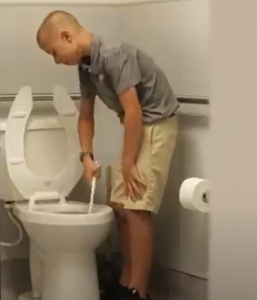



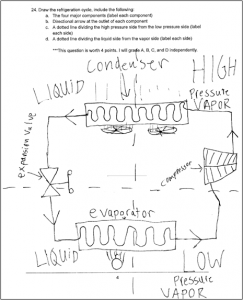
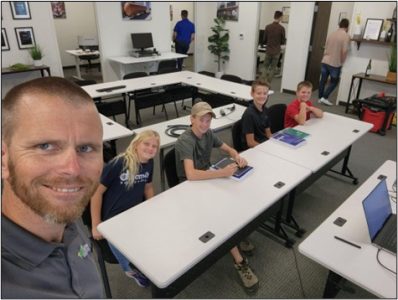
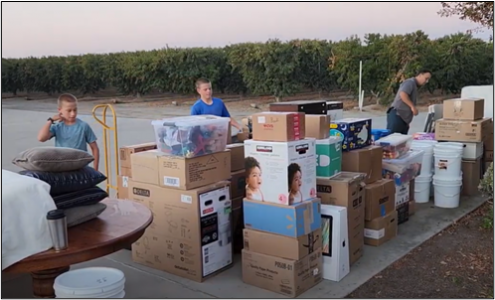
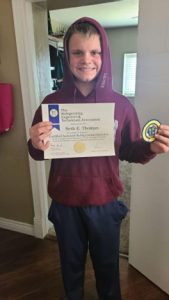
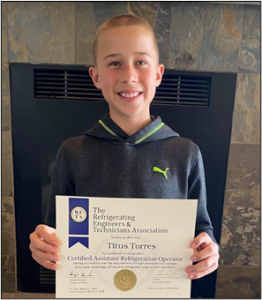



Leave a Reply